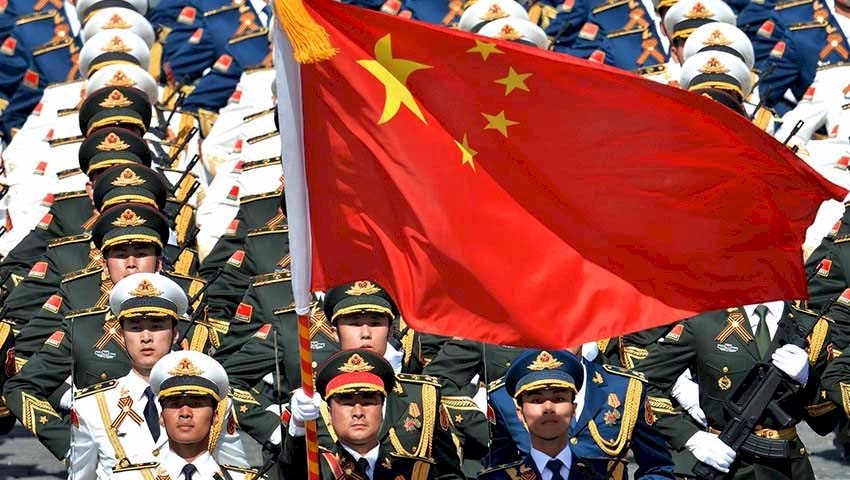The One-China policy was adopted by Australia half a century ago following the ground-breaking visit by then opposition leader Gough Whitlam to the People’s Republic of China. This basis for Australian diplomacy with China has persisted since then even in spite of the recent cold-shoulder shown by China to Australia, as exemplified by the controversial 14 points of contention as proclaimed by China last year.
Times may be changing. In the Weekend Australian Cameron Stewart has written: "Independent senator Rex Patrick has called for Australia to consider abandoning its One-China policy amid growing tensions over Taiwan in the first call by a federal politician since the 1970s."
The consensus of the many active commentators on Taiwan and the prospect of aggressive take-over by mainland China, is that any Taiwanese declaration of independence would precipitate Chinese invasion. For Australia to unilaterally abrogate the One-China policy we have supported thus far, would attract extraordinary retribution from China and would not do much to assist Taiwan either.
The US and more recently Japan have declared their support for Taiwan to retain its independence but neither has taken the final step of disavowing the One-China policy as such. So, why would Australia go out on a limb (again)?
This comes at the same time Australia has completed its withdrawal of troops from Afghanistan and former Australian Chief of Army Peter Leahy has reminded us that: "The decision to go to war is an important one. It requires more deliberation than an 'executive decision' It needs the deliberate participation of the entire Parliament and the active engagement of the Australian public." (Weekend AFR 10/11 July 2021)
Paul Kelly, also writing in the Weekend Australian, discusses at length Australia’s remarkable resilience and resolve in the face of China’s aggression and notes how the COVID-19 pandemic has enhanced the political leverage exercised by state and territorial leaders in international affairs especially the dichotomy of national security vis a vis export-import trade with China.
Kelly goes on to make the astounding observation that Australia is at an ‘existential moment’ such that we must find a balance between maintenance of our values and upholding our economy and standard of living. To heed the warnings from Peter Leahy and avoid the consequences of unilateral steps such as that advocated by Senator Patrick, we now must address the achievement of a national consensus on Australia’s position regarding Taiwan and its relationship with China. To do otherwise is to risk not only the wrath of China but also the creation of deep differences within the Australian polity.
The time has come for Australia to reflect on where we are, where we have come from in both our relations with China and our long engagement in the Middle East and adjacent territories, and most importantly where do we want to go in the future.
It is my contention based on the profound advice of former heads of Department of Foreign Affairs and Trade (DFAT) that China will continue to be an important trading partner for Australia and other countries no matter what other geopolitical changes may occur. The only possible cause for this to be changed would be major wide-spread warfare that most people seek to avoid. China does also but has made clear there are some circumstances that would overtake this restraint, and the One-China policy is such a potent catalyst for such a catastrophe to occur.
Recently there has been discussion on the subject of national mobilisation that would be required in the event of Australia’s involvement in wide-spread conflict over any protracted period. Defence of Taiwan by a willing coalition including Japan, South Korea and the US might well become a protracted affair affecting Australia’s international trade whether or not we were an active participant in the conflict. We have much to gain by helping to ensure such conflict is deferred indefinitely and much to lose by doing anything to precipitate its occurrence.
Returning to our own national consensus, it is time we started to think beyond the pandemic and consider how we move forward in a new era where China is acknowledged as a great power with which we intend to trade on a fair basis. We should avoid aggravating the current frosty relationship by taking any prominent position on Taiwan, while working to maintain the current trading relationship within the Indo-Pacific region, and to restore a dialogue with China without compromising our resilience in so doing.
Christopher Skinner served 30 years in the Australian Navy as a weapons and electrical engineer officer in six surface warships, that included service in the South-East Asian Treaty Organisation, the Vietnam War and North-West Indian Ocean surveillance. He is a member of several organisations and institutes engaged in geopolitics, technology and submarine matters, including the Australian Institute of International affairs. The views expressed above are entirely those of the author and are not endorsed by any of the organisations of which he is a member.



